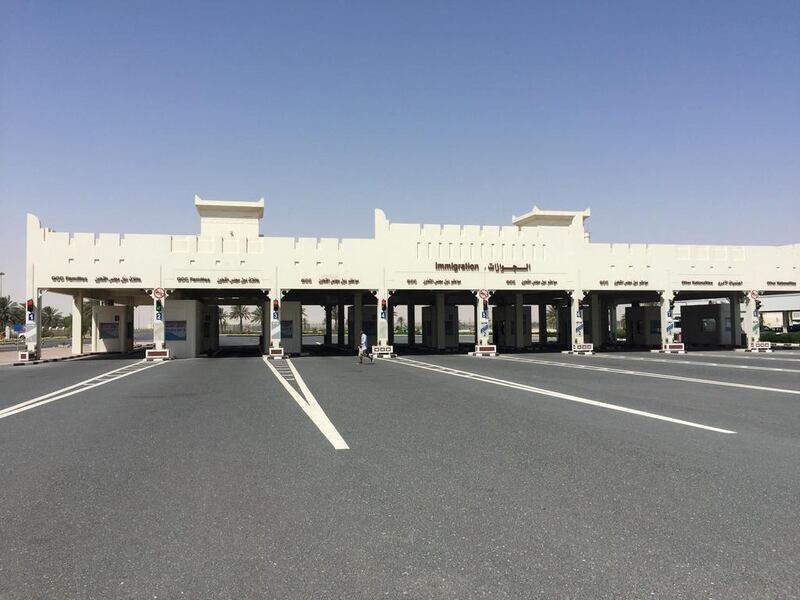Muscat // Saudi Arabia on Monday reassured Qataris that there were no restrictions on them performing the Umrah pilgrimage despite a breakdown in relations between the two governments.
The kingdom made the statement after “untrue” reports circulated on social media saying that Qataris had been prevented from entering the Grand Mosque in Mecca.
“The kingdom’s leadership emphasise providing services and facilitating affairs of Umrah performers from all countries of the world, including brothers from the state of Qatar,” the General Presidency for the Holy Mosque and the Prophet’s Mosque said.
Saudi Arabia has received more than 1,600 Qatari pilgrims since the crisis erupted, the Saudi Press Agency reported.
Saudi Arabia, the UAE and other Arab countries cut diplomatic, travel and trade ties with Qatar last week, accusing it of supporting Iran and funding extremist groups.
With little sign of progress from mediation efforts by Kuwait and Oman, Qatar has turned to Iran and Turkey for support in maintaining food supplies. The main supply route through a land border with Saudi Arabia has been cut along with sea and air freight.
Oman said on Monday it has started shipping services to Qatar from two of its ports.
An Omani shipping officer said it was doing it out of humanitarian reason to help a brotherly country overcome temporary obstacles.
“We made Sohar and Salalah ports available for Qatar to transport food and other goods,” the officer said. “The decision was made after Qatar made a request and we accepted it.”
The officer said most of the food destined for Qatar would come from Oman and the rest from Iran. “We will run these three times a week and as long as they are needed,” he added.
Ships from Sohar and Salalah have to use the Strait of Hormuz in neutral water to reach Qatar’s Hamad Port. Oman takes a relatively independent diplomatic approach to the other five GCC states, particularly towards Iran.
While Qatar is the world’s largest producer and exporter of liquefied natural gas, it relies heavily on imports for food staples and raw materials.
Analysts estimate that at least 40 per cent of all of Qatar’s food supplies are transported across its land border with Saudi Arabia.
Shipping analysts say that the Omani ports will see a significant rise in sea freight to boost their operations.
“At the moment both ports work about 60 per cent of their capacity. The Qatar shipment would be a boon to their businesses and would translate to higher revenues,” said John Sullivan, a retired adviser of Oman Port Services.
The shipping services from Omani ports to Qatar would take over from Dubai’s Jebel Ali port that ran the services to Hamad Port before the crisis.
Iran on Sunday announced it had sent five planes carrying produce to Qatar. Three ships carrying 350 tonnes of food are also set to leave.
Turkey also said it will play a major role in supplying Qatar with food.
The UAE and Saudi ambassadors to Turkey explained their countries’ positions to the Turkish foreign minister Mevlut Cavusoglu at a meeting in Ankara on Monday.
Kuwait and Oman are the only GCC members which did not take measures against Qatar in the worst diplomatic crisis to hit the region in years.
Qatar on Monday denounced the sanctions as “unfair” and “illegal”.
“Whatever relates to our foreign affairs ... no one has the right to discuss,” foreign minister Sheikh Mohammed Al Thani said in Paris.
British foreign minister Boris Johnson said he would meet this week with his counterparts from Saudi Arabia, Kuwait and the UAE, and called for calm.
“I have urged all sides to refrain from any further escalation and to engage in mediation efforts,” he said.
At a cabinet meeting on Monday, Donald Trump reiterated his support for the action against Qatar by the UAE and Saudi Arabia.
“We are stopping the funding of terrorism,” the US president said. “You have to starve the beast.”
foreign.desk@thenational.ae
* With additional reporting from Agence France-Presse





